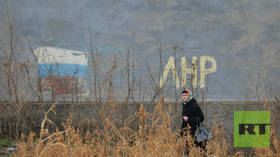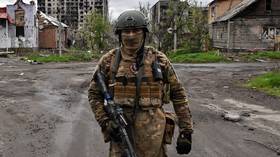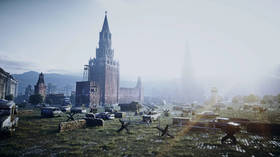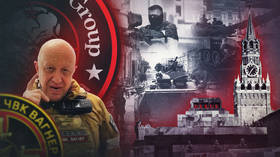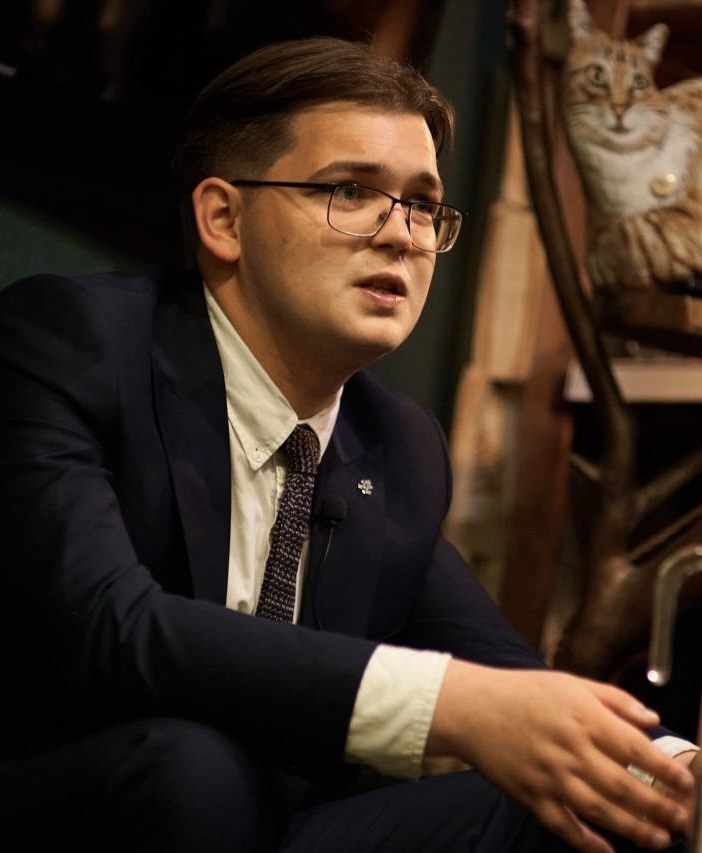‘I lived, fought, and was ready to die for Russia’: A young writer-turned-soldier who took up arms against Ukraine tells his story
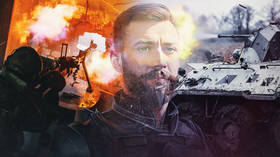
The war in Ukraine attracts all kinds of people to the front, including creative people. Vladislav Efremov is one of them. Before the outbreak of hostilities, he lived in St. Petersburg and worked in journalism. In March 2022, the young man “beat plowshares into swords” and went to the front as a volunteer, where he fought until April 2023. Having lost his leg in combat, he now offers media support for fighters on the front lines and plans to write a book about his experiences.
Vladislav shares his thoughts on what inspires young people to go to the trenches, the routine life of soldiers, the technological revolution happening on the Donbass battlefields, and the new generation of war writers.
‘I’ve always been attracted to war’
RT: Why did you decide to go to the front as a volunteer?
Vladislav Efremov: I’ve always been kind of a peculiar young man. At the time of the Russian military intervention in Syria, I wanted to go there as a war correspondent. Then, I occasionally thought of going to Donbass. But in 2014, I was only 19 years old and you had to be 21 to fight as a volunteer. Then, after 2015, there were no active hostilities in Donbass, so there was nothing much to do. The militia wasn’t allowed to attack the enemy while the Minsk agreements held. The guys who served during this time told me that actual seals were placed on their guns so that no one would shoot. Anyway, since then, this ‘unresolved gestalt’ has been gnawing at me.
When the current war started in 2022, I was at home in St. Petersburg and agonized over the fact that I was sitting there doing nothing. Everything I did felt like nonsense – writing articles, doing DIY, at home. My regular life seemed meaningless compared to what was happening in Ukraine. I was ready to take up any role and become a war journalist, a humanitarian volunteer, a serviceman. In the beginning, I felt like going into journalism since I liked it and had experience in this field. I wanted to work in the media, but in a military context. But actually, I ended up becoming a serviceman.
RT: How did you join the army?
VE: It’s an unbelievable story. It was in the early days of the conflict when you still couldn’t cross the Donetsk People’s Republic (DPR) border due to coronavirus restrictions. The only way to get over was if you had relatives or if you were going to the DPR to work. The guys from the The Other Russia [political] party helped me cross the border and join the DPR army. They told me to go to Rostov-on-Don and wait for further instructions.
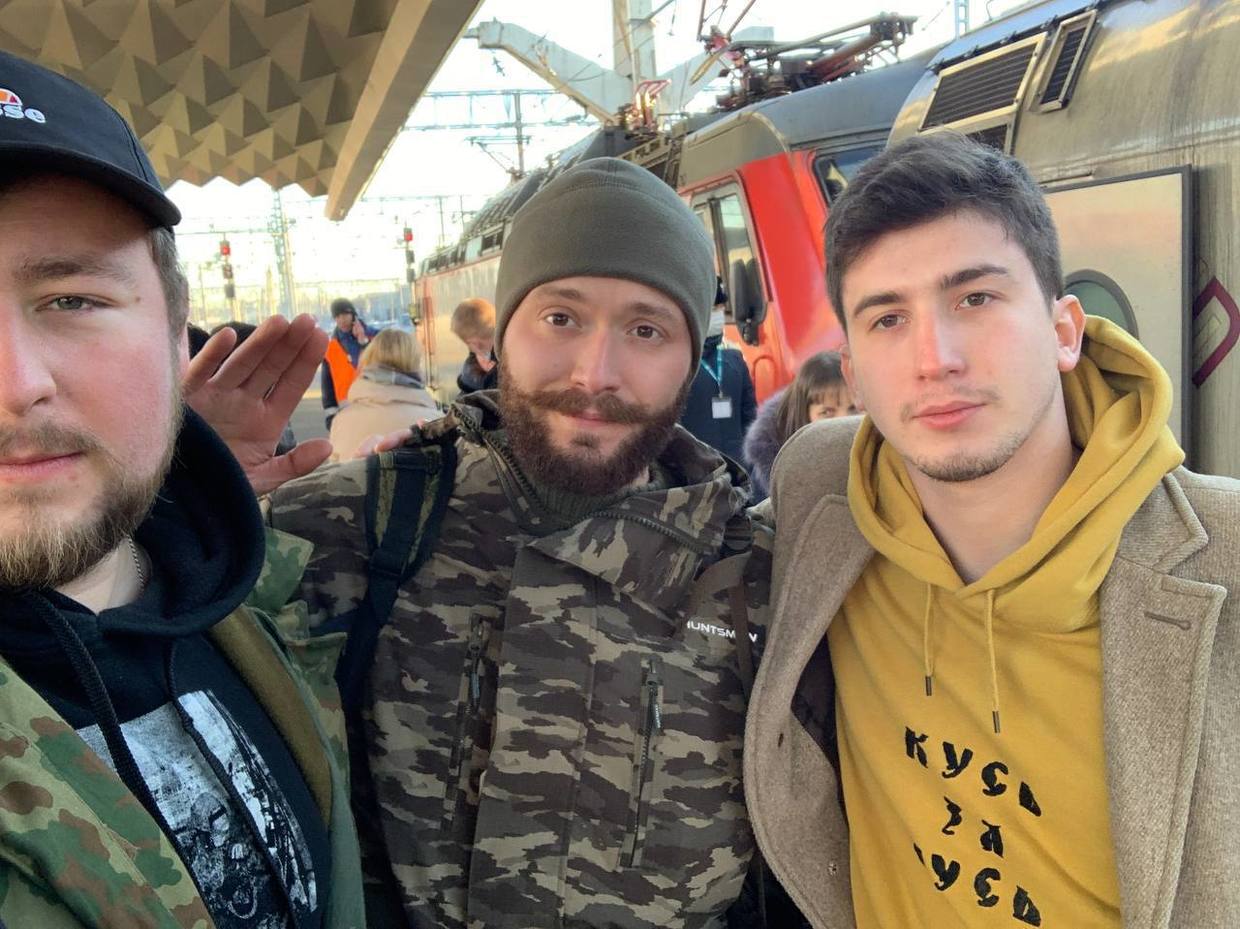
I packed my things, but didn't even know what I would need at war. So I packed a load bearing vest, thermal underwear, and some clothes. Later, on my third combat trip to Donbass, I bought half a million rubles (about $5,500, at present exchange rates) worth of equipment, but during that first trip, I spent 20,000 rubles ($220), tops.
On the way, I met an 18-year-old guy who also wanted to volunteer but didn’t know what to do. He was just going to Rostov to see how things would go from there. I thought the guy was really mature and decided to take him along. Later I saw that I was right – he turned out to be a great fighter.
To cross the border, we were given employment contracts stating that we were going to work as legal assistants in Makeyevka, a satellite city of Donetsk. We joined the Pyatnashka International Brigade and became the first volunteers to arrive at the front with the help of the The Other Russia party. We kind of opened a Pandora’s box, and later, most volunteers from The Other Russia party also joined this unit.
‘You need to fight in a totally different way’
RT: How did your service in the Pyatnashka brigade go? What combat missions did you have?
VE: Well, what kind of missions can combat bums have? (laughs). We were positioned near Avdeevka. I still remember my first combat experience. We arrived in a field and there was a dugout. We dragged our things there, it was night, you couldn’t see a thing. Our task was to defend this position. If the enemy attacked, we would face certain death but, if possible, we had to inform headquarters of what was happening. Our efforts would have delayed the offensive by ten minutes at most.
Our combat missions were mostly like that – to arrive at a specific location and just sit there, or go on guard duty. It wasn’t really fun or interesting. Except I remember how once we came under a targeted mortar attack. Or there was the time when I repaired broken wires – we were constantly attacked by artillery and the cables got cut by the shell fragments. But mostly, our job was to sit in the mud under constant shelling.
The only thing that stood out was my experience in the Avdeevka industrial zone, where the fighting did not stop even during the Minsk agreements. There was a group of Abkhazian volunteers there and after the first battle, two young guys realized that war wasn’t really their thing. So the command ordered two good fighters to come and replace them. For some reason, they sent me and my – now deceased – comrade, who used the military call sign ‘Latvian’ and had never participated in a gun battle before. Our only combat experience was limited to sitting under shelling.
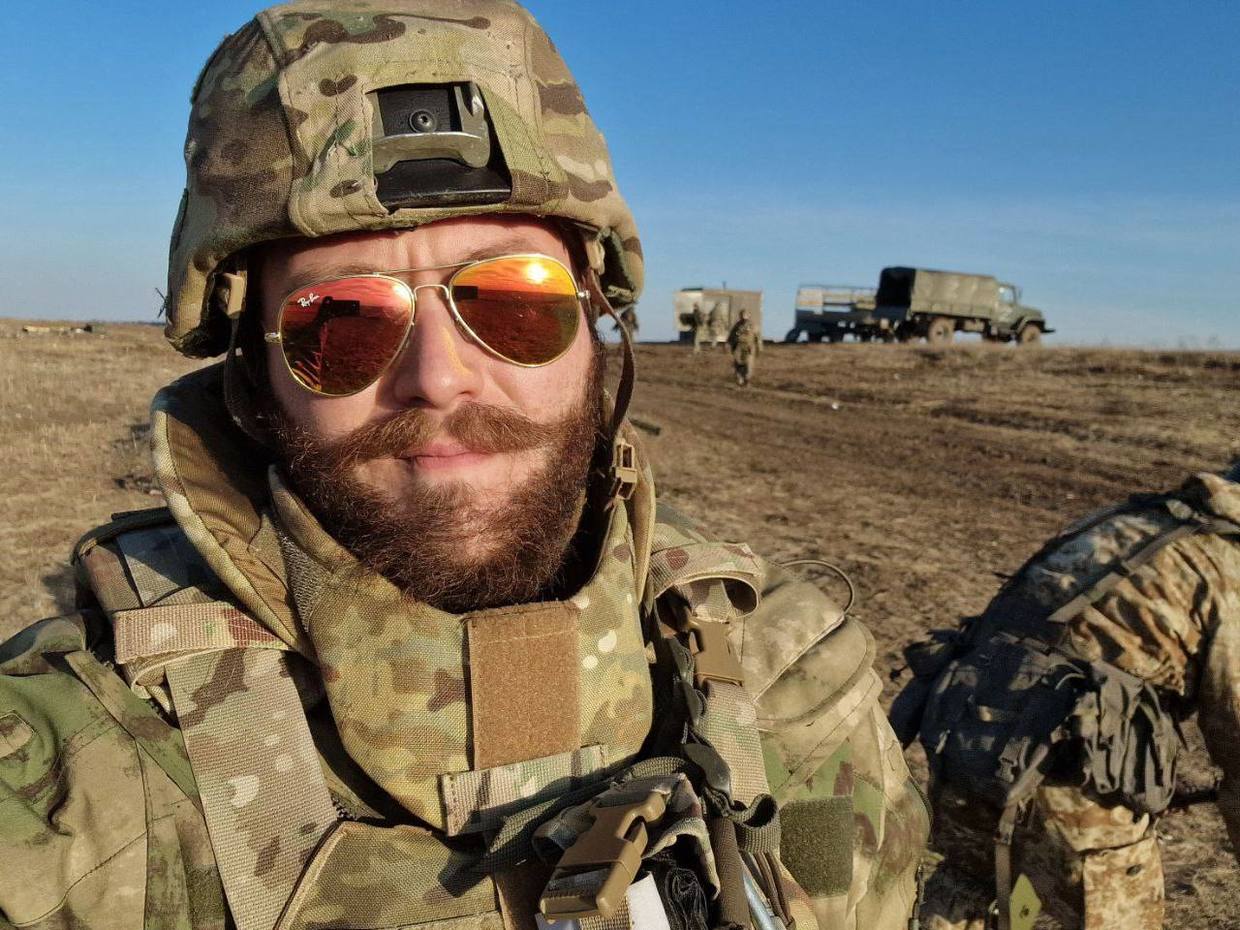
But in the industrial zone, there was constant shooting. We were positioned at a small fortified firing point, grenade launcher shots flew overhead, it was dark, we couldn’t see anything and could only hear shooting and flashes of light from the explosions. At the time, the only thing I could think of was how I hadn't been killed yet. That was a tough mission.
Once we even participated in a real assault operation. The evening before, our unit was assembled and we were told that tomorrow at 4am, we were to get up and receive weapons. But this assault was a total failure. No one knew what to do, we just jumped into the truck and were dropped off near Avdeevka. It was only later that I realized – you need to fight in a totally different way. But that was how the volunteer units operated back then. In general, both sides had less experience and you could get away with mistakes which the war would not forgive today. At that time, you could still fight badly and survive as an unprofessional soldier.
For about ten hours, we sat under intermittent shelling. Then, the truck simply came back for us and we were told that we were going back to the base because the artillery did a poor job, the armored vehicles got damaged, and the assault couldn’t be carried out. I am very grateful to the command for this decision. Though in general, our actions weren’t really professional. So after I got wounded, I decided to leave the unit.
‘I was in a constant state of adrenaline rush’
RT: But you chose to stay in the army?
VE: Yes, but I realized that I need to join a more professional unit. In Pyatnashka, I started practicing operating a drone, then bought one and continued sharpening my skills. The next time I went to the front line it was as a UAV pilot as part of the Troy special unit. It was a really cool experience.
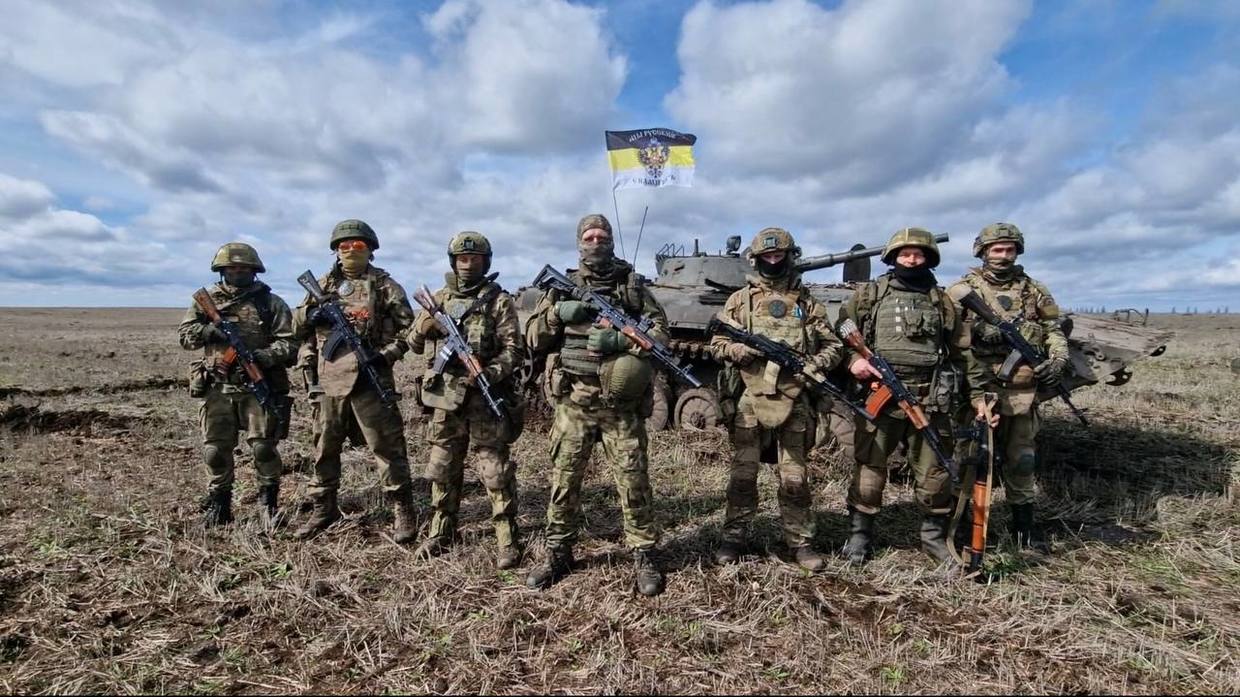
At the spot, we were met by the Main Intelligence Directorate. They said they needed a drone pilot and so I went with them. As a result, I lived with the guys from intelligence, they had their own camp. I used the drone to search out the enemy, guide the artillery, and drop munitions. I felt like I was needed. What did I do in the former unit? I sat in a dugout under shelling and didn’t even see the enemy. But here I saw that I was useful, and didn’t even want to leave for rotation. But unfortunately, the unit was disbanded.
RT: So what did you decide to do next?
VE: I realized that I needed to continue fighting. My second trip to Donbass showed that, in general, I like it. During my third combat trip, I joined the Imperial Legion volunteer unit. In terms of training, everything was great – we had regular training both before leaving for the front and later. I was constantly learning something new, working with equipment, different types of weapons and fortifications. We constantly practiced shooting, I had more shooting practice during this training than in the two previous combat trips.
Soon we found ourselves positioned near Ugledar. I was a UAV pilot there and really liked it in Ugledar. I was in a constant state of adrenaline rush, always busy with something, spinning like a hamster in a wheel and never sitting still.
By that time, Russian troops in the area were attempting to storm Ugledar. We also participated in the assault operation. We were positioned around the town in fields and forests. We couldn’t move without smoke screens since Ugledar is located on a hill and from our positions it resembled a fortress. Drones flew in from there all the time – the Ukrainians had a lot of them – and we came under constant artillery fire.
Drones were everywhere. Both sides used them to drop munitions and to guide artillery, tanks, and mortars. We basically used them to grind each other down. One day, while waiting out the shelling in the basement of a house, we made up a dark joke – counter-battery fighting is when you wait until the enemy gets bored of shooting at you. I don’t even know whether the nature of fighting near Ugledar can change. This combat trip was very interesting, but it was brief because I stepped on a mine and lost a leg.
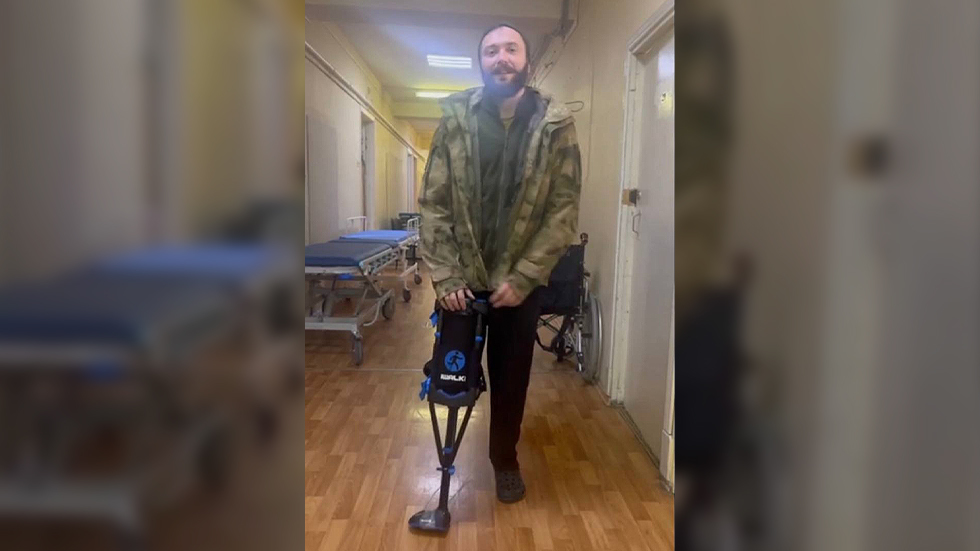
I don’t regret anything. I have to use a prosthesis for the rest of my life… But I did what I had to and I did it well. I am a happy person simply because most people have meaningless lives, but I had and still have meaning in life. I lived, fought, and was ready to die for Russia. And I go on living.
‘No one wants to play Counter Strike in real life anymore’
RT: You saw the conflict in its early days and then returned to the front nearly a year later. How has the situation on the front lines changed over the past year?
VE: First of all, drone activity has increased to a dramatic extent. There’s something constantly buzzing above your head, someone is constantly watching you. FPV drones are getting really common and I think this will greatly impact how we fight. We’ll need to get better at hiding. But even this won’t prevent an FPV drone from flying right into the dugout and blowing it up. You can’t hide from it anywhere, it’s small and fast, you can only run as fast as you can and hope that it won’t go after you.
One of my comrades was with PMC Wagner and fought near Bakhmut. On two occasions, he personally saw how FPV drones hit evacuation vehicles with wounded fighters who the enemy was targeting specifically. FPV drones are mass-produced and they are cheap barrage ammunition. This means that field fortification will become less important and military equipment will be even easier to destroy. After my second trip, I saw that in this war, there are two types of people – those who operate the drones and those who hide from them. This trend is increasing by the month, and soon we will come to a point where drone pilots fight against other drone pilots. In such circumstances, who will need the rest of the army? Why invest huge money into maintaining and operating a tank when it can be blown up by a cheap drone that’s ready to launch anytime?
That’s where combat is headed. We’re constantly searching for new tools and if they prove effective, they are implemented on the battlefield while the old tools become a thing of the past. For example, infantry fighting vehicles, which are supposed to cover the advance of the infantry, are nearly impossible to use like that nowadays. Now it’s just a gun on the move and an evacuation vehicle. The same goes for tanks. If they are loaded with enough explosives, FPV drones easily destroy heavy equipment which can’t do anything to stop them.
Of course, for every new attack mechanism, new protection mechanisms are being developed. This will become an engineering war between drone developers and the developers of UAV suppressors and anti-drone guns. The war is becoming increasingly more technical and professional. It no longer needs non-professional fighters – like there’s no real need for ordinary people with machine guns. For example, during my three combat trips, I never used a machine gun the way it’s supposed to be used, and I rarely heard about someone shooting the enemy down.
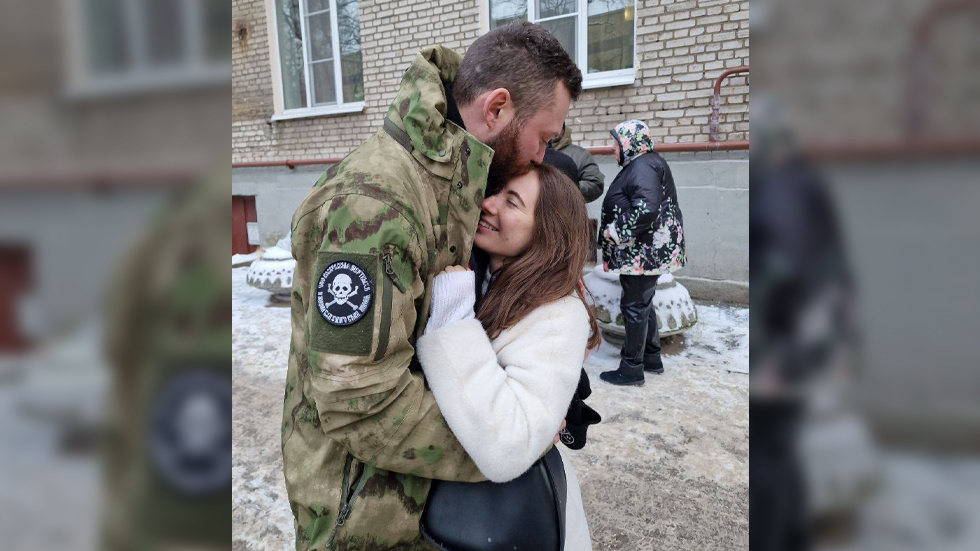
Even stormtroopers try to open fire as little as possible. These days, almost everyone knows that if the enemy is in the building, they need to be brought down with artillery fire, there’s no need to go in and storm the building. You enter the building only to confirm that it’s empty. But even then, grenades are used. No one wants to play Counter Strike in real life anymore, it has become useless. It’s easier to bring the enemy down with grenade launchers until it no longer shows signs of life, and then carry out a building clearing operation. In this regard, group types of weapons work a lot better compared to individual weapons. The best kind of assault operation is the one that didn’t happen.
‘I hope this war doesn’t create another Remarque’
RT: Back at the front, you started writing stories, and many other fighters also have Telegram channels. Is this just self-reflection for the servicemen, or is front line prose socially significant?
VE: It certainly is socially significant. War is kind of a world in itself and only a small number of people come in contact with it. At the same time, it has its own charisma and attracts attention. Most people want to understand what war is, what’s going on there, and what it’s actually like.
I don’t think that war prose should be used for moralizing. Rather, it gives people a taste of the world they will never experience but one they want to understand. Demand creates its own supply, and I expect a lot of material to appear. But it will not always be high-quality literature. For the author, it isn’t really self-reflection, but a way of self-expression. I often saw the average man who hasn’t experienced or seen anything at war saying how he wants to write a book about the war. Basically, he thinks that writing books is fun, it gives you money and women, so why not do it? But how many will actually sit down and write the book? To be honest, very few. And how many will write something considered worthy? Even fewer.
I really wouldn’t want us to have a genre of low-quality war literature. This happened in the USSR after World War II, when tons of books were published about the war. These books are often impossible to read. War literature should not be a propaganda tool, you don’t need to sit down and write a book about the war so your descendants know what you fought for. You would just create something disgusting. War literature should be primarily literature, not military propaganda.
I hope this war doesn’t create another [Erich Maria] Remarque (laughs). I read ‘All Quiet on the Western Front’ when I already had combat experience and I was shocked by the amount of whining and naive thinking about how we are all humans and so let the defense ministers do the fighting, not the soldiers. But hey, the world is like this, people kill each other. We have been doing this since the beginning of time and will do it until the end of time. But, I repeat, any literature about the war has a right to exist if it really is literature. In this case, the author’s personal opinion on the war doesn’t matter. It’s just that I think someone who is excited about the subject will have a lot more interesting stuff to tell you about it.
